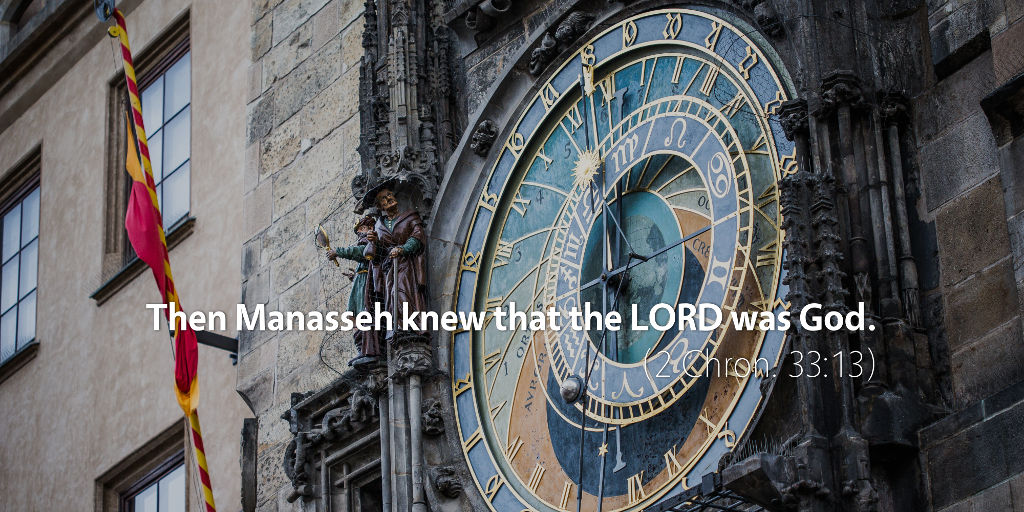Bible Readings for December 28th
2 Chronicles 33 | Revelation 19 | Malachi 1 | John 18
The contrast between the godly King Hezekiah and the wicked King Manasseh is striking. Hezekiah had been a champion for the pure worship of Yahweh, but Manasseh does what is “evil in the sight of the LORD, according to the abominations of the nations whom the LORD drove out before the people of Israel” (2 Chron. 33:2). Manasseh therefore undoes all the faithful reforms of his father, Hezekiah, and leads Judah astray to do “more evil than the nations whom the LORD destroyed before the people of Israel” (2 Chron. 33:9).
And yet, where Manasseh had been a one-sided villain in the book of 2 Kings, the story we find in 2 Chronicles paints a more complicated picture, as was the case with Rehoboam (2 Chron. 10–12) and Abijah (2 Chron. 13). In 2 Kings, we read that Manasseh had been the one to set Yahweh on an unchangeable path toward destroying Jerusalem and sending the people of Judah off into exile (2 Kgs. 21:10–15). Here in 2 Chronicles, however, we find that Manasseh actually humbles himself after Yahweh sends the Assyrians to capture him and drag him in chains to Babylon (2 Chron. 33:11). When Manasseh repents, God hears Manasseh’s prayer and restores the king again to Jerusalem, so that “then Manasseh knew that the LORD was God” (2 Chron. 33:13).
This story clearly foreshadows the looming exile to Babylon that all Judah would experience only a few short decades after Manasseh’s mini-exile to Babylon. Still, we should not overlook that the Chronicler specifically tells us about how Manasseh returned from exile: through humbling himself, praying, seeking Yahweh’s face, and turning from his wicked ways (cf. 2 Chron. 7:14). At this point, there is no way to alter the course of Judah’s future. The Chronicler, however, is beginning to shape the story not of how Judah can avoid exile but how they will return from exile. Remember that the books of Chronicles are written from the perspective of the returned exiles from Babylon, so this account is designed to shape their understanding of how to move beyond the disaster that they had experienced.
And in the story of Manasseh, God holds out hope that even the most egregious of sinners are not too far separated from his grace and mercy. This was true for Manasseh, it was true for the exiles who returned from Babylon, and it remains true for you and me living today. The difference, though, is that we who live on this side of the Lord Jesus Christ understand the reason why God can be so forgiving toward us: because of his Son. Through the life, death, and resurrection of Christ, God extends grace to wretches like us who languish in exile from the disastrous curse of our sin.
Podcast: Play in new window | Download (4.4MB) | Embed
Subscribe: Apple Podcasts | RSS | More

Scripture quotations are from The Holy Bible, English Standard Version copyright © 2001 by Crossway Bibles, a division of Good News Publishers. Used by permission. All rights reserved.


